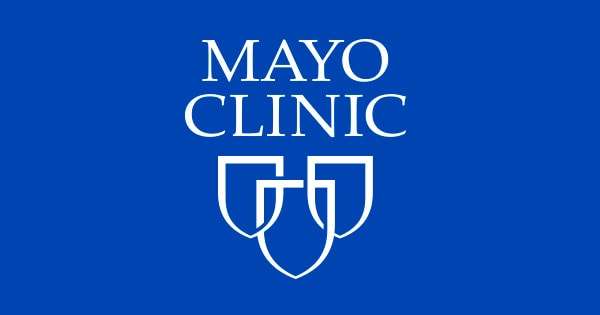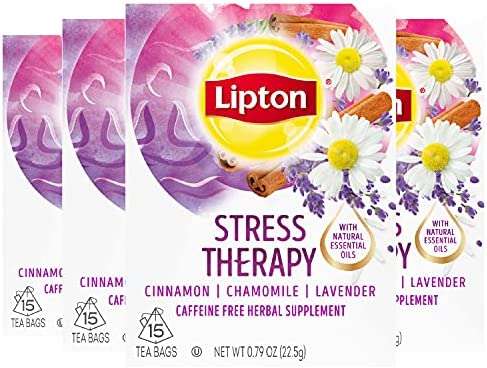Daily aspirin therapy: Understand the benefits and risks
Daily aspirin therapy can be a lifesaving option, but it’s not for everyone. Get the facts before considering a daily aspirin.
By Mayo Clinic Staff
Taking aspirin every day may lower the risk of heart attack and stroke, but daily aspirin therapy isn’t for everyone. Is it right for you?
The answer depends on your age, overall health, history of heart disease, and risk of having a future heart attack or stroke.
Daily aspirin therapy may be used in two ways:
- Primary prevention. This means you’ve never had a heart attack or stroke. You’ve never had coronary bypass surgery, coronary angioplasty with stent placement, or blocked arteries in your neck, legs or other parts of the body. But you take a daily aspirin to prevent such heart events. The benefit of aspirin for this use has been debated.
- Secondary prevention. This means you’ve already had a heart attack or stroke, or you have known heart or blood vessel (vascular) disease. You’re taking a daily aspirin to prevent heart attacks or strokes. The benefit of daily aspirin therapy in this situation is well established.
Should you take a daily aspirin?
Don’t start taking a daily aspirin without talking to your health care provider. While taking an occasional aspirin or two is safe for most adults to use for headaches, body aches or fever, daily use of aspirin can have serious side effects, including gastrointestinal bleeding.
Your health care provider can give you details on the pros and cons of daily aspirin therapy and whether it might help you prevent a heart attack or stroke.
In general, as a person ages, the risk of heart attack and stroke increases. But the risk of bleeding from aspirin goes up even more. So:
- In people who have a low risk of heart attack, the benefits of taking a daily aspirin don’t outweigh the risks of bleeding.
- The higher the risk of heart attack, the more likely it is that the benefits of daily aspirin therapy are greater than the bleeding risks.
Because of bleeding risks, some recent guidelines say that people age 60 and older without known heart or blood vessel (vascular) disease should not start taking a daily aspirin to prevent a first-time heart attack or stroke. However, guidelines vary among organizations. Other recommendations say to avoid starting daily aspirin therapy after age 70.
If you’re between ages 60 and 69, consider talking with your health care provider about daily aspirin therapy and how it may affect you.
Daily low-dose aspirin therapy may be recommended for the primary prevention of heart attack or stroke if:
- You’re between ages 40 and 59 and you’re at high risk (10% or greater) of having a first-time heart attack or stroke within the next 10 years.
- You haven’t had a heart attack, but you’ve had coronary bypass surgery or a stent placed in a coronary artery, or you have chest pain due to coronary artery disease (angina) or any other medical condition where aspirin is proved to prevent heart attacks or stroke.
- You’re younger than 60 and you have diabetes and at least one other heart disease risk factor, such as smoking or high blood pressure.
If you’ve had a heart attack or stroke or you have known heart disease, your health care provider may recommend that you take a daily aspirin to prevent heart attacks or strokes unless you have a serious allergy or history of bleeding.
How can aspirin prevent a heart attack?
Aspirin interferes with the blood’s clotting action. When a person bleeds, clotting cells, called platelets, collect at the site of the wound. The platelets help form a plug that seals the opening in the blood vessel, stopping the bleeding.
But this clotting can also occur within the vessels that carry blood to the heart. If blood vessels are already narrowed from a buildup of fatty deposits in the arteries (atherosclerosis), a fatty deposit in the vessel lining can tear, exposing the blood to the inner wall of the artery, which then clots.
The clot prevents blood flow to the heart and causes a heart attack. Aspirin therapy reduces the clotting action of platelets — possibly preventing a heart attack.
Should you avoid daily aspirin therapy if you have another health condition?
Take daily aspirin therapy only under the advice of your health care provider. Before starting the therapy, tell your health care provider if you have a health condition that could increase your risk of bleeding or other complications. Daily aspirin therapy may not be a good choice if you have:
- A bleeding or clotting disorder that causes you to bleed easily
- An aspirin allergy, which can include asthma caused by aspirin
- Bleeding stomach ulcers or a history of gastrointestinal bleeding
What’s the best dose of aspirin to take?
Your health care provider will likely discuss what aspirin dose is right for you. Low doses of aspirin — such as 75 to 100 milligrams (mg), but most commonly 81 mg —can be effective at preventing heart attack or stroke. Health care providers usually prescribe a daily dose between 75 mg and 325 mg (a regular-strength tablet).
What happens if you stop taking aspirin every day?
If your health care provider has told you to take an aspirin every day, contact him or her before stopping it.
If you’ve had a heart attack or a stent placed in one or more of your heart arteries, it’s important to keep taking daily aspirin and any blood-thinning medications exactly as directed by your health care provider. Stopping daily aspirin therapy can have a rebound effect that may trigger a blood clot and lead to a heart attack.
Can you take aspirin if you regularly take ibuprofen or another nonsteroidal anti-inflammatory drug (NSAID) for another condition?
Both aspirin and nonsteroidal anti-inflammatory drugs (NSAIDs), such as ibuprofen (Motrin IB, Advil, others) and naproxen sodium (Aleve), thin the blood and decrease blood clotting. Regular use of NSAIDs can increase bleeding risks.
Certain NSAIDs can increase the risk of heart attacks on their own. Taking aspirin with some NSAIDs can increase the risk of bleeding even more.
If you need to take ibuprofen or other NSAIDs, talk to your health care provider about alternatives that won’t interfere with daily aspirin therapy, such as acetaminophen (Tylenol, others).
What are the possible side effects of daily aspirin therapy?
Side effects and complications of taking daily aspirin include:
- Stroke caused by a burst blood vessel. While daily aspirin can help prevent a clot-related stroke, it may increase the risk of a bleeding stroke (hemorrhagic stroke).
- Gastrointestinal bleeding. Daily aspirin use increases the risk of developing a stomach ulcer. If you already have a bleeding ulcer or gastrointestinal bleeding, taking aspirin may cause more bleeding, perhaps to a life-threatening extent.
- Allergic reaction. If you’re allergic to aspirin, taking any amount of aspirin can trigger a serious allergic reaction.
If you’re taking aspirin and you need surgery or dental work, be sure to let the surgeon or dentist know so they can take steps to prevent excessive bleeding. Don’t stop taking aspirin without talking to your health care provider.
What are possible drug interactions with daily aspirin therapy?
Combining aspirin with a prescription blood-thinning medication (anticoagulant) may greatly increase the risk of major bleeding. Anticoagulants include:
- Apixaban (Eliquis)
- Dabigatran (Pradaxa)
- Enoxaparin (Lovenox)
- Heparin
- Rivaroxaban (Xarelto)
- Warfarin (Jantoven)
Sometimes, it may be appropriate to combine a low-dose aspirin with warfarin or another anticoagulant. Such combination therapy always needs to be carefully discussed with your health care provider.
Other medications that can interact with aspirin and may increase bleeding risks include:
- Clopidogrel (Plavix)
- Corticosteroids
- Ibuprofen (Advil, Motrin IB, others), when taken regularly
- Some antidepressants, such as clomipramine (Anafranil) and paroxetine (Paxil, Brisdelle, Pexeva)
Certain herbal and dietary supplements can also increase the bleeding risk when combined with aspirin. These include:
- Bilberry
- Capsaicin
- Cat’s-claw
- Danshen
- Evening primrose oil
- Ginkgo
- Kava
- Ma-huang
- Omega-3 fatty acids (fish oil)
Drinking alcohol while on daily aspirin therapy may increase the risk of stomach bleeding. Talk to your health care provider about how much alcohol is safe to drink. If you choose to drink alcohol, do so in moderation. For healthy adults, that means up to one drink a day for women and up to two drinks a day for men.
If you take daily aspirin, is it still safe to take an aspirin during a heart attack?
Yes. Taking aspirin during a heart attack is safe and recommended. If you think you’re having a heart attack, call 911 or emergency medical services. Don’t delay calling for help. Aspirin alone won’t save your life if you’re having a heart attack.
When you call for help, the emergency operator may tell you to chew an aspirin, but will first ask if you have an aspirin allergy or other health conditions that would make taking an aspirin unsafe. It’s OK to chew an aspirin if your health care provider has previously told you to do so if you think you’re having a heart attack — but always call 911 or emergency medical services first.
Should you take a coated aspirin?
Coated aspirin is also called enteric-coated aspirin. It is designed to pass through the stomach and not dissolve until it reaches the small intestine. Coated aspirin may be gentler on the stomach and may be appropriate for some people who take a daily aspirin, especially those with a history of gastrointestinal inflammation or ulcers.
But there’s no evidence that taking coated aspirin decreases the chance of developing gastrointestinal bleeding. Also, coated aspirin may not work as well as plain aspirin when taken at the time of a possible heart attack. Talk to your health care provider if you’re concerned about ways to decrease your bleeding risk.
There is a problem with information submitted for this request. Review/update the information highlighted below and resubmit the form.
From Mayo Clinic to your inbox
Sign up for free, and stay up to date on research advancements, health tips and current health topics, like COVID-19, plus expertise on managing health.
ErrorEmail field is required
ErrorInclude a valid email address
To provide you with the most relevant and helpful information, and understand which information is beneficial, we may combine your email and website usage information with other information we have about you. If you are a Mayo Clinic patient, this could include protected health information. If we combine this information with your protected health information, we will treat all of that information as protected health information and will only use or disclose that information as set forth in our notice of privacy practices. You may opt-out of email communications at any time by clicking on the unsubscribe link in the e-mail.
Thank you for subscribing!
You’ll soon start receiving the latest Mayo Clinic health information you requested in your inbox.
Sorry something went wrong with your subscription
Please, try again in a couple of minutes
- Aspirin use to prevent cardiovascular disease: Preventive medication. U.S. Preventive Services Task Force. https://www.uspreventiveservicestaskforce.org/uspstf/draft-recommendation/aspirin-use-to-prevent-cardiovascular-disease-preventive-medication. Accessed Oct. 12, 2021.
- Hennekens CH, et al. Aspirin for the secondary prevention of atherosclerotic cardiovascular disease. https://www.uptodate.com/contents/search. Accessed Oct. 12, 2021.
- Aspirin and heart disease. American Heart Association. https://www.heart.org/en/health-topics/heart-attack/treatment-of-a-heart-attack/aspirin-and-heart-disease. Accessed Oct. 12, 2021.
- Zheng SL, et al. Association of aspirin use for primary prevention with cardiovascular events and bleeding events: A systematic review and meta-analysis. JAMA. 2019; doi:10.1001/jama.2018.20578.
- Abdelaziz HK, et al. Aspirin for primary prevention of cardiovascular events. Journal of the American College of Cardiology. 2019; doi:10.1016/j.jacc.2019.03.501.
- Aspirin for reducing your risk of heart attack and stroke: Know the facts. U.S. Food and Drug Administration. https://www.fda.gov/drugs/safe-daily-use-aspirin/aspirin-reducing-your-risk-heart-attack-and-stroke-know-facts. Oct. 13, 2021.
- Aspirin: Questions and answers. U.S. Food and Drug Administration. https://www.fda.gov/drugs/questions-answers/aspirin-questions-and-answers. Accessed Oct. 13, 2021.
- 2020-2025 Dietary Guidelines for Americans. U.S. Department of Health and Human Services and U.S. Department of Agriculture. https://www.dietaryguidelines.gov. Accessed Oct. 13, 2021.
- Aspirin. IBM Micromedex. https://www.micromedexsolutions.com. Accessed Oct. 13, 2021.
- Lopez-Jimenez F (expert opinion). Mayo Clinic. Oct. 13, 2021.
- Aspirin use to prevent cardiovascular disease and colorectal cancer: Preventive medication. U.S. Preventive Services Task Force. https://www.uspreventiveservicestaskforce.org/uspstf/recommendation/aspirin-to-prevent-cardiovascular-disease-and-cancer. Accessed Oct. 12, 2021.
- Kopecky SL (expert opinion). Mayo Clinic. Oct. 13, 2021.
- Spencer FA, et al. Aspirin in the primary prevention of cardiovascular disease and cancer. https://www.uptodate.com/contents/search. Accessed Oct. 13, 2021.
- Solomon DH. Nonselective NSAIDs: Overview of adverse effects. https://www.uptodate.com/contents/search. Accessed Oct. 13, 2021.
- AskMayoExpert. Aspirin for primary prevention of cardiovascular disease (adult). Mayo Clinic; 2021.
- Sundström J, et al. Low-dose aspirin discontinuation and risk of cardiovascular events. Circulation. 2017; doi:10.1161/CIRCULATIONAHA.117.028321.
- Saito Y, et al. Low-dose aspirin for primary prevention of cardiovascular events in patients with Type 2 diabetes mellitus. Circulation. 2017; doi:10.1161/CIRCULATIONAHA.116.025760.
- Arnett DK, et al. 2019 ACC/AHA Guideline on the Primary Prevention of Cardiovascular Disease. American College of Cardiology. 2019; doi:10.1016/j.jacc.2019.03.010.
- AskMayoExpert. Antiplatelet therapy for coronary stents (adult). Mayo Clinic; 2021.
See more In-depth



